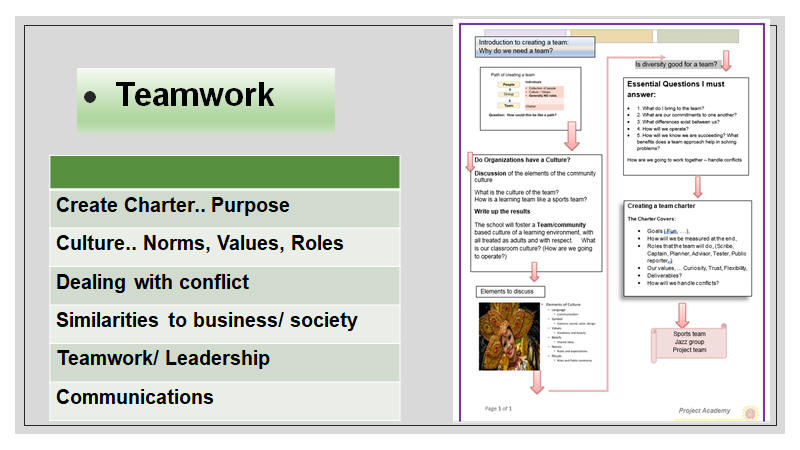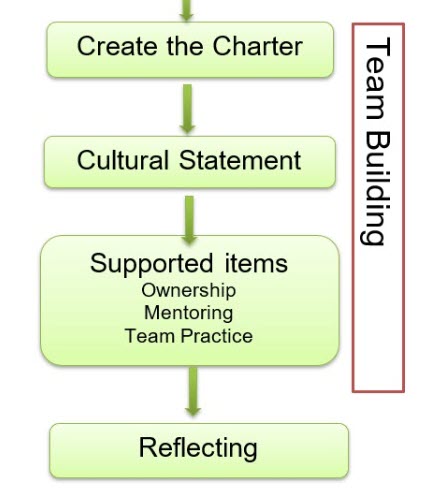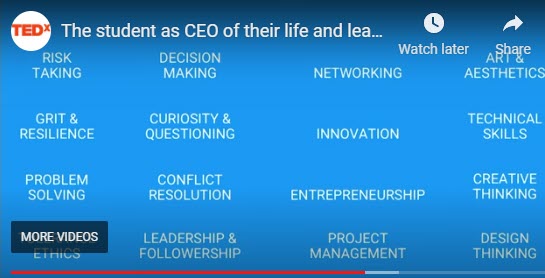Have a
question or comment?
Have a question or comment?
|
Overview
|
Elements
Included |
|
Building the elements of a
team |
|
Using a larger peer group |
|
Learning to deal with
adversity |
|
Incorporating life-skills/
foundational skills in the process |
|
Reflection |
| |
|
Reading-1 team overview |
|
Reading-2-peer learning |
|
 |
| |
|
|
|
| |
|
If you hand me a hammer and
don’t give me plans for building something, then all I can
do is pound in nails all day with no real results. |
|
How to begin:
-
How big should our Team/Crew be? In the beginning, we
should split the people into groups of approx. 6 people
in developing the elements of the Team/Crew. Then we
will share our thoughts between these peer groups.
·
We will use the concept of peer learning with
answering questions to develop our concepts. I.E what
is a team or crew? What is its purpose/charter?, What
are the elements of it?
|
Create your purpose statement of your Charter
for your team. What do you want this team to do? |
|
Build your Cultural statement for the team.
Look at the first 10 minutes of the first video
in the FLIP section to get an idea of the
importance of your team culture. |
|
How do we deal when
disagreements occur? |
Review the development of your ground rules for your
team.
-
Review
and discuss the Support items with your team mates. How
will you incorporate these into your team activity?
-
When learning about a new subject as a team, use various
questions to gather information.
|
|
Video of Team Work |
|
Listening Skills (Comedy ) |

|
Boxes on the right are hot links |
|
Not all boxes are hot linked. |
Dealing with conflicts in the team
|
Insure active listening to
each other |
|
Seek understanding not agreement |
|
Outline the issues |
|
Build dialogue |
|
Agree to an action plan |
|
Insure you follow up. |
|
Be positive |
|
Resource for discussion of conflicts. |
|
 |
|
|
|
|
Tools to use:
-
You can use any resource to find information ( Web,
Books, People, etc.)
-
Open "Tools" and
see which ones fit your team need.
Foundational Skills
-
Use your questions to
start the dialogue.
· You
can work together to create your thoughts
· You
need to write your thoughts as a group
· Reflex
on your completion. What have we learned?, Need to know
more,
|
 |
| |
|
Possible
Outcomes: |
· Create
a community charter and cultural statement
· Written
procedures and processes for a community operation
· Understand
the connection between a learning community and a
sports/music team
|
| |
|
|
Setting community values, norms
see forming team-work-2 handbook above
Flip
learning page
|
|
Charter (Purpose, Rules, Structure,
Community authorization, Goals)
|
Culture (
Values, Norms, Rituals, Beliefs, Moral
Compass) |
|
Similar Teams |
Coaching
Support |
|
Quality Processing |
Measurements
|
|
|
|
Forming teams
|
|
Notes:
|
A
critical premise is
respect for the opinions and ideas of others.
It is crucial to maintain the positive chemistry
of the team! Consider The Platinum Rule:
"Treat others not as you would like to be
treated, but rather as they would like to be
treated" - Respect! The intent is to recognize
the humanity and worth of all members of the
team. All members of the team should prioritize
selflessly working together in achieving the
goal the team has set for itself
|
|
|
|
“As French Philosopher Tocqueville rightly
noted, in order for the American experiment to
succeed, personal liberty must be fiercely
protected, but
also carefully balanced with a commitment to the
common good.”
— The Upswing: How America Came Together a
Century Ago and How We Can Do It Again by Robert
D. Putnam https://a.co/eeFtWzH |
|
|
|
General Tenants
-
Use your questions to start the dialogue.
-
Think of yourself as in your own business.
… You are your customer.
-
Problems are opportunities … the bigger the
problem the bigger the opportunity. Vinod
Khosla
-
Use
the engineering mind-set to focus on all the
activities around your normal position. Open
Engineering mind-set
-
Learn from your errors … They are learning
tools
-
You own your training and growth, we are
here to support you but not lead you.
-
Be a lifelong learner … Have fun at it.
|
|




